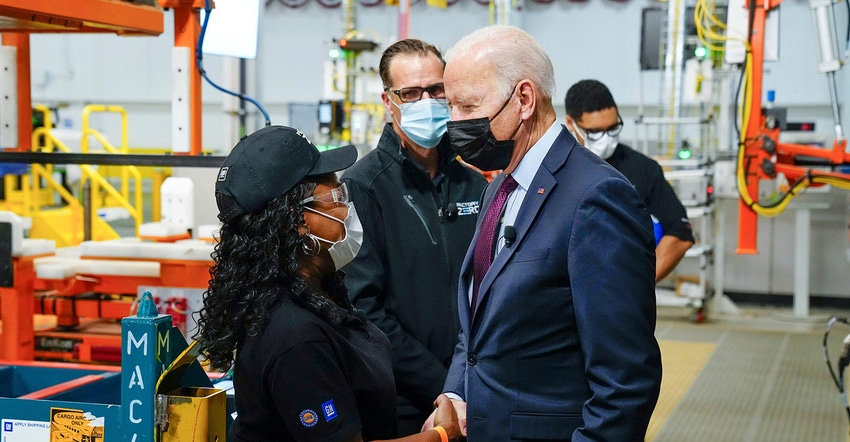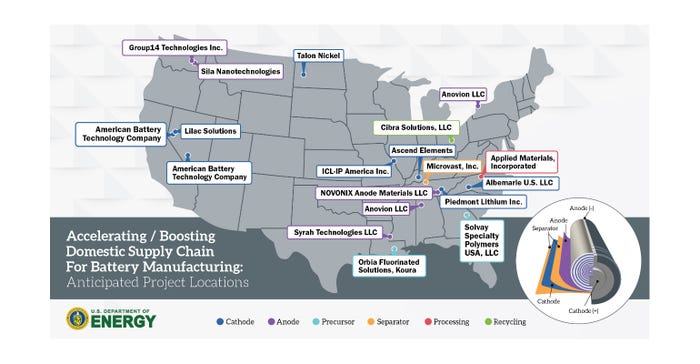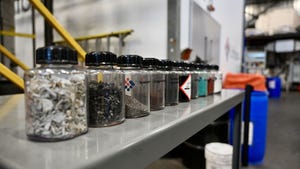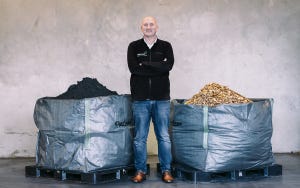Bipartisan Infrastructure Law funding is being dispersed to supercharge US battery manufacturing.
October 24, 2022

The US Department of Energy (DoE), announced on October 19th the first set of projects funded by the Bipartisan Infrastructure Law to expand domestic manufacturing of batteries for electric vehicles (EVs) and the electrical grid and for materials and components currently imported from other countries.
The 20 companies will receive a combined $2.8 billion to build and expand commercial-scale facilities in 12 states to extract and process lithium, graphite and other battery materials, manufacture components, and demonstrate new approaches, including manufacturing components from recycled materials. The Federal investment will be matched by recipients to leverage a total of more than $9 billion to boost American production of clean energy technology, create good-paying jobs, and support President Biden’s national goals for electric vehicles to make up half of all new vehicle sales by 2030 and to transition to a net-zero emissions economy by 2050.
The funding for the selected projects will support:
Developing enough battery-grade lithium to supply approximately 2 million EVs annually
Developing enough battery-grade graphite to supply approximately 1.2 million EVs annually
Producing enough battery-grade nickel to supply approximately 400,000 EVs annually
Installing the first large-scale, commercial lithium electrolyte salt (LiPF6) production facility in the United States
Developing an electrode binder facility capable of supplying 45% of the anticipated domestic demand for binders for EV batteries in 2030
Creating the first commercial scale domestic silicon oxide production facilities to supply anode materials for an estimated 600,000 EV batteries annually
Installing the first lithium iron phosphate cathode facility in the United States
Currently, virtually all lithium, graphite, battery-grade nickel, electrolyte salt, electrode binder, and iron phosphate cathode material are produced abroad, and China controls the supply chains for many of these key inputs.
Of the 20 companies selected, five will build new facilities in disadvantaged communities, and 15 in locations adjacent to disadvantaged communities. Additionally, six announced projects have established goals for hiring residents of disadvantaged communities into permanent roles, and 13 included commitments to negotiate Workforce and Community Agreements. These agreements are focused on engagement with host communities, labor unions, and/or Tribal entities, to agree on community benefits and implementation plans. At least two funded projects have collective bargaining agreements for both construction and ongoing production jobs, and an additional nine projects have committed to labor neutrality, with two applicants already pursuing Project Labor Agreements with unions representing their workers.
This round of funding is the first phase of $7 billion in total provided by the Bipartisan Infrastructure Law to strengthen the domestic battery supply chain by supporting upstream materials processing to create the precursor materials for batteries. DOE stated that it anticipates moving quickly on additional funding opportunities to continue to fill gaps in and strengthen the domestic battery supply chain.

DoE’s Office of Manufacturing and Energy Supply Chains (MESC) will manage the portfolio of projects with support from DOE’s Office of Energy Efficiency and Renewable Energy’s Vehicle Technologies Office.
“This is truly a remarkable time for manufacturing in America, as President Biden’s Agenda and historic investments supercharge the private sector to ensure our clean energy future is American-made,” stated US Secretary of Energy Jennifer M. Granholm. “Producing advanced batteries and components here at home will accelerate the transition away from fossil fuels to meet the strong demand for electric vehicles, creating more good-paying jobs across the country.”
The 20 grant recipients are:
6k Inc;
Albemarle U.S. Inc.;
American Battery Technology Co.;
Amprius;
Anovion LLC;
Applied Materials Inc.;
Ascend Elements (awarded for 2 projects);
Cirba Solutions;
Membrane Holdings LLC – ENTEK;
Group14 Technologies Inc.;
ICL-IP America Inc.;
Koura, part of Orbia Fluorinated Solutions;
Lilac Solutions;
Microvast;
NOVONIX Anode Materials LLC;
Piedmont Lithium Inc.;
Sila Nanotechnologies;
Solvay Specialty Polymers USA;
Syrah Technologies LLC; and
Talon Nickel (USA) LLC;
A DoE fact sheet about these companies and their projects is available as a PDF. Battery Technology will follow their progress in the coming months.
About the Author(s)
You May Also Like





